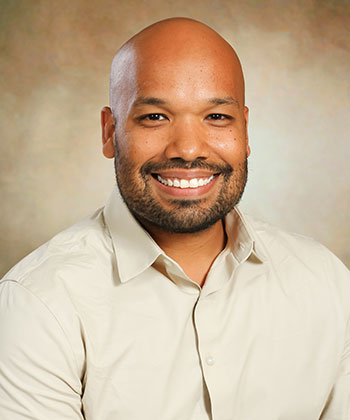
Assistant Professor
Ph.D., Capella University
School of Health Sciences
(440) 826-2222, admission@bw.edu
Department Chair: Laura Hvizd, (440) 826-5929, lhvizd@bw.edu
If your career interest includes speech, language and hearing, Baldwin Wallace's communication sciences and disorders major will prepare you for success. With two tracks of study, the major offers a traditional four-year format and integrated speech-language pathology track that enables you to earn both bachelor and master's degrees in five years.
You'll learn from professors with decades of classroom, clinical and research experience and participate in research studies. You'll work with clients who have diverse communication needs through BW's renowned Speech Clinic, community agencies, internships and volunteer programs.
Whether your career interest is speech-language pathology, audiology, speech science, hearing science or a related allied health field, the study of communication sciences and disorders offers you outstanding preparation for graduate school. For the past 21 years, 95 percent of BW communication sciences and disorders students who applied to graduate school have been accepted, surpassing the national average of 34 percent.
As a communication sciences and disorders major, you can apply to BW's five-year integrated B.S./M.S. program in SLP during the summer between your second and third year. If accepted, you'll take graduate coursework beginning your fourth year at BW and transition directly into the graduate program. You'll earn both bachelor of science and master of science degrees and be prepared to enter the workforce career-ready in five years - a full year early.
Offered as a major and minor, communication sciences and disorders is a pre-professional program. Small class sizes, individual attention and faculty mentoring are hallmarks of the program.
The communication sciences and disorders major prepares students to demonstrate:
You'll supplement classroom studies with experiential learning opportunities that include research, internships, co-curricular activities and client-based services through the BW Speech Clinic and community outreach screenings.
Extensive and intensive learning opportunities make BW's Speech Clinic distinctive in providing you with hands-on experience. Under the supervision of a licensed and certified speech-language pathologist, you'll work with clients of all ages who have speech, language and communication disorders related to autism, articulation, voice, reading, traumatic brain injury, Down's Syndrome, Parkinson's Disease, stroke and concussion.
BW's Speech Clinic has decades of proven success. Its professional operations and environment provide advanced learning for students that parallels graduate-school experiences. The clinic is open year-round.
Students from the communication sciences and disorders major can volunteer for projects sponsored by the department - the BW Speech Clinic Carnival, the Walk to End Alzheimer's, the Buddy Walk for Downs Syndrome Awareness, the Cleveland Food Bank, and many others.
Research is inherent to the program. Through coursework and other initiatives, you'll learn to critically evaluate research as well as conduct a clinically-based research studies. Opportunities include individual research studies as well as collaborative ones with BW faculty or clinical staff. Recent topics have addressed:
BW's proximity to Cleveland puts you within easy access to top hospitals, clinics, public health organizations and other facilities.
Personally and professionally rewarding, student organizations and activities foster career skills, leadership and teamwork.
A professional organization, NSSLHA is a source of information for students interested in this career field. Members learn about advancements in the field, enhance their academic experience and benefit from networking opportunities. BW's chapter hosts a speech clinic carnival for patients and families from the Speech Clinic.
The BW Choose Ohio First STEM Scholars Program is open to Ohio residents who are entering Baldwin Wallace in the fall as a first-year student or transfer student and are interested in communication sciences and disorders. Students are eligible to apply to the program which also offers the Choose Ohio First scholarship, awarding substantial annual, renewable scholarships.
Laura Hvizd
Chair, Communication Sciences and Disorders Department
Associate Professor
M.A., Cleveland State University
Christie A. Needham
Professor
Director of Clinical Education, Baldwin Wallace Speech Clinic
M.A., The University of Akron
Colleen F. Visconti
Program Director
Professor
Ph.D., Case Western Reserve University
Eric Bonilla
Assistant Professor
M.A. The University of Akron
Kara Hodge
Assistant Professor
M.A., The George Washington University
Christa M. Jones
Associate Professor
M.A., University of Pittsburgh
Lori Kallevig
Assistant Professor
M.A., Kent State University
Amy O'Brien
Associate Professor
M.A., Cleveland State University
Chisomo Selemani
Associate Professor
M.A., Case Western Reserve University
Amy Tepper
Associate Professor
Ed.D., National Louis University
Amy Vaughn
Associate Professor
Ph.D., Kent State University
Taya Neumann
Lecturer
M.A., University of Akron
Megan Perkins
Lecturer
Clinical Supervisor
M.A., The University of Akron
Julianne Wolf
Lecturer
M.S., Bowling Green State University
Lauren Holecko
Olmsted Falls City Schools